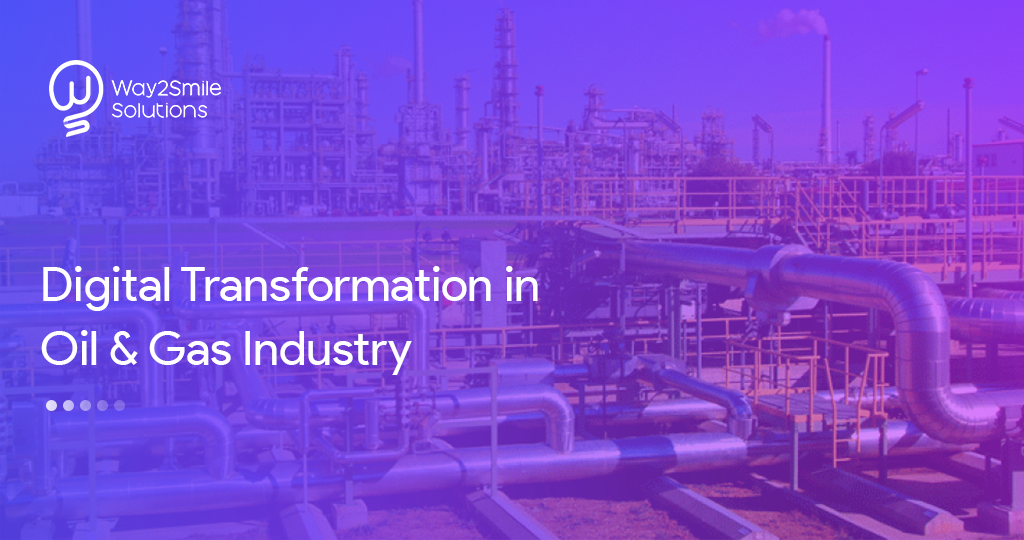The message was clear at the Adipec (Abu Dhabi International Petroleum Exhibition and Conference) last year: the regional oil and gas industry needs to be more forthcoming in the adaption of digital solutions and digital transformation companies for unlocking the maximum potential of the sector with regards to assuring greater returns on investments, by improving economies of scale and cutting costs.
In the oil and gas sector of the UAE at present, the main focus is on increasing efficiencies, bringing down costs, focusing on the outcomes, and optimizing performance. For reaching each of these goals effectively along the way, automation and digitization are the only ways forward. Besides, technological invasion and digital transformation cannot be neglected when the aim is to meet the ever-increasing energy needs of the country, and its trade relations.
So, what does digital transformation mean for the oil and gas sector of Dubai? Let’s go deeper into the matter to find out for ourselves.
The potentials of Digital Transformation for oil & gas industry
Like any other business sector, digital transformation holds the promise to make the oil and gas industry of Dubai bigger and better. Improved health of the assets will lead to a reduction in the downtime and improvements in asset performance. At the same time, the sector will gain better abilities for incident prediction, which will bring down operational risks and protect the workers effectively.
Moreover, cognitive learning has the ability to deliver digitized intelligence that lets experience and knowledge to be freely available across the organizations. The top executives of the industry are of the belief that technology, especially digitization, is being of immense help to the upstream sector of the oil and gas industry.
The production is still exceeding the market demand in the country, which keeps the prices low, along with an urgency for new efficiencies. The oil and gas companies of the nation are having to go through this stage. At present, it is all about how better a company’s margins are, and not how huge the production is.
Digitization is all about collecting, analyzing, and utilizing considerable amounts of data. It can also assuredly bring in considerable operational developments in the field by using control systems, robotics, analytics, and sensors.
Right from acquiring, exploring, to the pricing downstream, great decisions come from good data. It helps the oil and gas organizations in developing new abilities of explorations and operations that ultimately helps them in generating greater returns on investments. Digital transformation is the way to go when the aim to be an important part of the future of the industry and a model for the rest of the world to follow.
Digital opportunities for organizations in the oil & gas sector
Significant opportunities for digital transformation exist in the oil and gas sector. The industry has much more opportunities for advancements in cloud computing than what it presently utilizes. Besides, a service focused architecture, digital tracking, and industrialization have all come together to expand the ability of the management to bring down IT costs but increasing efficiency and agility across the sector.
IT values optimization in the oil and gas sector, and it can lead to a step-change in value creation over the course of time, which will also decrease the cost of serving. It is aimed at reducing complexity, increasing responsiveness, and delivering higher efficiency and performance in the businesses.
Moreover, for the companies that have it right in terms of IT-based value optimization, astounding operational and financial rewards await. Studies have predicted that there will be a twenty-five percent rise in savings in terms of general, selling, administrative, as well as, operating costs. The production rates will increase by eight percent, while the production costs go down by four percent. Even bottom line will improve by ten percent.
When present fields get depleted, and the firms need to look for more complicated, isolated, and expensive sources of energy, specifically during the long periods of low prices of oil and gas, a boost in efficiency will be much-needed to survive.
Ways to utilize Digital Opportunities in the sector in future
Using Digital opportunities in near future starts with the articulation of a clear digital plan into the complete business plan. This will let the companies allocate the right resources towards the goals and do away with the non-productive investments. Using value-added capability of digital technologies for removing operational efficiencies and building synergies with important business partners is an added benefit.
The utilization of Digital innovations and platforms can also be done for creating value as a part of the asset category. To explain it further, companies need to ask for similar financial performances from the investments in their digital assets and their business. A crucial advantage of the strategy will be noted in better economic margins attained using digital solutions, and giving up the absolute reliance on the industry as being the only breadwinner.
The next step for transformation is moving the consumer processes towards a customized and seamless experience. As the sector readily adopts digital tools in the operation, like robotics and artificial intelligence, efficiencies and performances will improve, reducing costly shutdowns and downtimes.
The final opportunity pertains to value creation, which is all about changing a business model for the entities all through the value chain moving toward digital-based models for gaining maximum efficiency minus the lag usually related to conventional methods.
Future uses of Digital Transformation for improving the business models
The envisioned digital innovations in the upstream oil & gas ecosystem can be realized using business model alteration in different stacks, namely, exploration, projects, drilling, and production.
Exploration stack investments are meant to improve reservoir modelling through machine learning. Oil field services and operators will have a major say in this. But, the operators need to manage the value chain of the oil & gas industry for ensuring that most of the important data stays with them because of the huge competitive value it has and how it will help operators to stay ahead in the sector.
Investments in project stacks is all about simulation tools and digital modeling for building a digital framework for integrating economics, equipment designs, field architecture, and reservoir data. The aim is to make better decisions to improve economic viability of the fields. Compensation might go from weekly wages to salary depending on efficiency.
Independent systems of drilling and creating closed loop will get the focus for drilling stacks. Rig owners need to cooperate with the OEMs, oilfield suppliers, and automatic drilling systems for offering better wellbores, saving time, reducing costs, and increasing efficiency. Compensation will be decided based on efficiency, and firms with the latest technologies will benefit the most.
Improvements in operational performances will help in realizing the digital benefits of production stacks. Big data will help in improving uptime, facilitating predictive maintenance, and increasing the performances of mission-based machinery in the process of production. Integrating data from different sources will help in constant upgrading of the reservoir models to enhance the rate of recovery and production.
Summing up
The future looks bright for the oil and gas industry of Dubai, if the strategies of digital transformation are implemented in a timely and well-planned manner. The sector has already come a long way, but there’s still a lot of road to cover.







